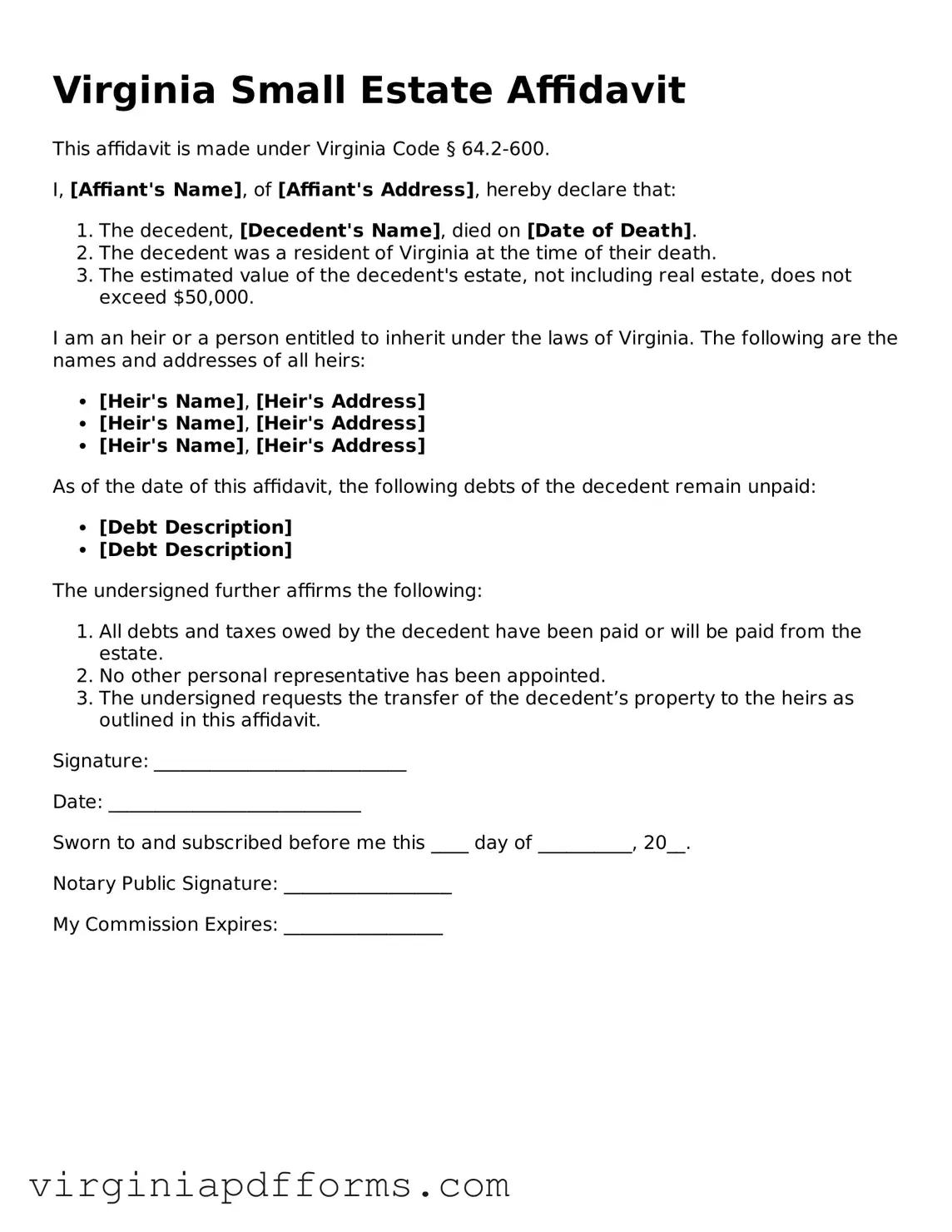Attorney-Approved Virginia Small Estate Affidavit Document
The Virginia Small Estate Affidavit is a legal document that allows individuals to settle the estate of a deceased person without going through the lengthy probate process. This form is particularly useful for estates with a total value below a certain threshold, streamlining the transfer of assets to beneficiaries. Understanding how to properly use this affidavit can simplify what is often a challenging time for families.
Access My Document Now

Attorney-Approved Virginia Small Estate Affidavit Document
Access My Document Now

Access My Document Now
or
Free Small Estate Affidavit File
Need this form wrapped up fast?
Finish Small Estate Affidavit online — edit, save, download without effort.